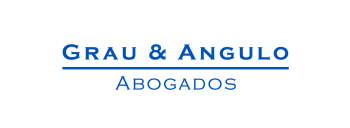A 2014 Tarragona Court of Appeal decision marked a radical departure from the court's former jurisprudence regarding the consumer error theory (for further details please see "Is Tarragona Court of Appeal abandoning consumer error theory?"). Section 16 of the Madrid Court of Appeal and Section 1 of the Lleida Court of Appeal recently followed the same trend in their welcome judgments of September and October 2016 respectively.
Until its recent judgment, Section 16 of the Madrid Court of Appeal had maintained a favourable stance towards the principle that in order to classify a wilful act of trademark counterfeiting as a criminal offence, the end consumer must have been deceived while purchasing the counterfeit product, taking into account factors such as the product's quality, price or place of purchase.
With its September 5 2016 ruling, Section 16 of the Madrid Court of Appeal changed its stance, aligning itself with the increasingly predominant Spanish jurisprudence which holds that consumers' lack of awareness that they are buying infringing products is not required in order for counterfeiting to be considered a crime under Article 274 of the Criminal Code, as the only legally protected right is the exclusive and excluding right to use and exploit an IP right derived from its registration with the relevant agencies.
Given the above, even if counterfeit products are inferior in quality or price to the original products or sold in places which could easily lead the purchaser to suspect that they are counterfeit, when any registered trademarks are displayed on such products without the rights holder's consent, the manufacturing, import and commercialisation of the products constitute IP crimes.
In addition, in its October 25 2016 decision, Section 1 of the Lleida Court of Appeal confirmed the position that it had adopted in its September 6 2012 judgment, in which it distanced itself from the interpretations that were favourable to the consumer error theory.
These decisions mark a step towards eliminating the increasingly less frequent jurisprudence which considers that consumers must be deceived in order for wilful acts of trademark counterfeiting to be deemed a criminal offence.
The amendment to the Criminal Procedural Law allowing access to the Supreme Court, which came into force on December 6 2015 with the aim of unifying Spanish doctrine, will undoubtedly reduce the disparity among the Spanish courts of appeal that has long been a cause of legal uncertainty for rights holders.
For further information on this topic please contact Jordi Camó or Marta Roig at Grau & Angulo's Barcelona office by telephone (+34 93 202 34 56) or email ([email protected] or [email protected]). The Grau & Angulo website can be accessed at www.gba-ip.com.
This article was first published by the International Law Office, a premium online legal update service for major companies and law firms worldwide. Register for a free subscription.



